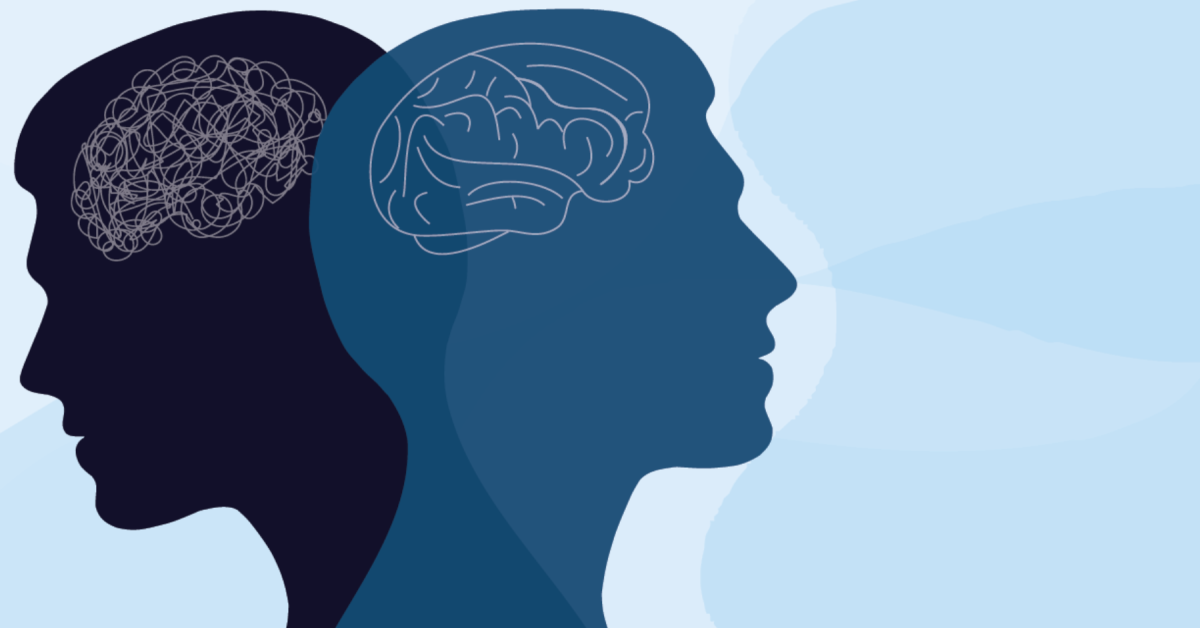Achieving Stability with Reliable Inpatient Mental Health Treatment
Achieving Stability with Reliable Inpatient Mental Health Treatment
Blog Article
Inpatient Mental Wellness Solutions: A Path to Recovery and Stability
Inpatient mental health solutions play a vital duty in attending to severe mental dilemmas, supplying a thoroughly structured environment that cultivates recovery and stability. These services not just include extensive assessments and individualized therapy strategies but likewise give constant accessibility to restorative treatments and medical support. The significance of this method prolongs past immediate relief, recommending a transformative influence on long-lasting mental wellness. Nonetheless, the complexities of the admission procedure and the relevance of aftercare raising important concerns regarding ease of access and efficacy in the broader context of mental health and wellness care. What ramifications might these factors have for individuals seeking aid?
Recognizing Inpatient Mental Health Solutions
Inpatient mental health solutions are vital for offering intensive and organized like people experiencing extreme emotional distress or psychological health problem. These solutions normally involve the admission of patients to specialized centers where they get continuous guidance and assistance from a multidisciplinary group of mental health and wellness professionals. The primary goal of inpatient treatment is to support patients, ensuring their safety and security and attending to acute symptoms that might pose a danger to themselves or others.
Inpatient programs commonly include a variety of restorative interventions, consisting of individual and team therapy, medication monitoring, and psychoeducation. The structured setting is created to promote recovery by providing a regular regimen, lessening external stressors, and promoting the advancement of dealing techniques.
When outpatient treatment choices have actually confirmed inadequate or when an individual is in situation,Admission to inpatient services is usually taken into consideration. Facilities may vary in regards to their particular focus, with some concentrating on certain disorders such as depression, anxiousness, or substance usage. Through detailed evaluations and customized treatment plans, inpatient mental health and wellness services aim to supply the required support for people to reclaim stability and plan for a transition to less extensive degrees of treatment.
Advantages of Inpatient Care
The benefits of inpatient treatment are significant, specifically for individuals encountering acute psychological wellness difficulties. Inpatient treatment provides a structured atmosphere that promotes recovery by decreasing stressors and diversions connected with day-to-day live. This controlled setting allows individuals to focus only on their mental health and wellness, facilitating the required time for recovery.
In addition, inpatient care deals 24/7 accessibility to restorative and medical support. This consistent schedule guarantees that clients can receive immediate interest during dilemmas, which is crucial for those experiencing extreme episodes - Inpatient Mental Health Program. The collaborative approach amongst clinical personnel, consisting of specialists, psychiatrists, and registered nurses, improves the top quality of care and promotes a detailed treatment strategy customized to specific demands
Furthermore, the public facet of inpatient treatment promotes a sense of belonging and support amongst clients. Group treatment sessions and shared experiences can minimize feelings of seclusion, urging individuals to participate in their recovery proactively.
In addition, inpatient programs typically provide individuals with necessary coping techniques and skills that can be testing to develop in outpatient settings. By dealing with underlying problems within a supportive structure, inpatient care can lead to a lot more secure results and a smoother transition back to daily life, inevitably paving the path to continual healing.
Treatment Strategies and Therapies
Various treatment methods and therapies are utilized in inpatient mental wellness services to resolve the special demands of each client. These methods are made to facilitate recovery and advertise emotional stability in an organized atmosphere.

Cognitive Behavior Treatment (CBT) is a commonly used strategy, helping people in identifying and modifying adverse thought patterns that add to their psychological wellness concerns - Inpatient Mental Health Program. Dialectical Behavior Modification (DBT) is an additional efficient technique, particularly for those with borderline individuality disorder, concentrating on psychological law and social efficiency
Pharmacotherapy plays a critical role in therapy, with psychological drugs suggested to manage symptoms of conditions such as stress and anxiety, schizophrenia, and depression. Routine tracking and changes make certain the efficiency of these medications while reducing negative effects.
Group therapy cultivates a feeling of neighborhood and support amongst people, enabling them to share experiences and dealing techniques. Additionally, holistic therapies, such as art and songs therapy, advertise self-expression and psychological healing.
Eventually, the combination of these diverse therapeutic modalities provides a detailed treatment strategy customized to every patient's details demands, intending to enhance their general wellness and facilitate an effective change back right into day-to-day life.
The Admission Process
Navigating the admission process for mental health services is an essential very first step toward recuperation. This procedure typically begins with an analysis carried out by a mental health and wellness expert. Throughout this analysis, the person's psychological health background, signs and symptoms, and immediate needs are completely checked out. This thorough analysis assists establish the proper level of treatment and guarantees that the patient gets tailored treatment.
As soon as the evaluation is finished, the following action involves going over the potential treatment options. The individual and the treatment group collaboratively choose the finest strategy, which may include inpatient treatment if the situation is deemed serious. This is adhered to by the conclusion of necessary documents, consisting of insurance coverage verification and approval forms, to guarantee that all economic and lawful facets are resolved.
In addition, family members involvement might be urged during this stage to give support and collect viewpoints on the person's situation. Eventually, the admission process aims to develop a risk-free and supportive environment for the individual, enabling a smooth shift into inpatient care. By participating and comprehending in this procedure, individuals can take a crucial action toward achieving psychological health security and recovery.

Aftercare and Ongoing Assistance
After finishing an inpatient mental wellness program, people usually face inpatient mental health services the crucial job of transitioning to aftercare and ongoing support, which are essential for sustained recuperation. This stage is critical for reinforcing the abilities and dealing mechanisms learned throughout the inpatient stay, ensuring that people remain to advance in their psychological health and wellness trip.
Aftercare generally entails a combination of outpatient treatment sessions, assistance groups, and medication administration. Taking part in routine therapy enables individuals to deal with continuous obstacles and establish strategies to manage stressors in their everyday lives. Support system provide a feeling of community and common experience, cultivating connection and understanding among peers encountering similar struggles.
In addition, ongoing support may consist of family participation, where liked ones are enlightened concerning mental health and wellness issues and urged to join the healing process. This all natural strategy creates a robust assistance network, boosting the person's chances of lasting stability.
Inevitably, recurring and aftercare support function as a bridge in between inpatient therapy and independent living, equipping individuals to browse their mental wellness obstacles with resilience and self-confidence. Focusing on these resources is important for promoting a sustainable recovery trajectory.
Final Thought

Inpatient mental health and wellness solutions play a vital function in resolving intense psychological situations, supplying a meticulously organized setting that promotes healing and stability.Inpatient mental health and wellness services are essential for providing extensive and structured treatment to individuals experiencing serious psychological distress or psychological health problem. Via comprehensive assessments and tailored treatment plans, inpatient psychological wellness solutions aim to offer the essential assistance for people to restore stability and prepare for a shift to much less extensive levels of treatment.

Report this page